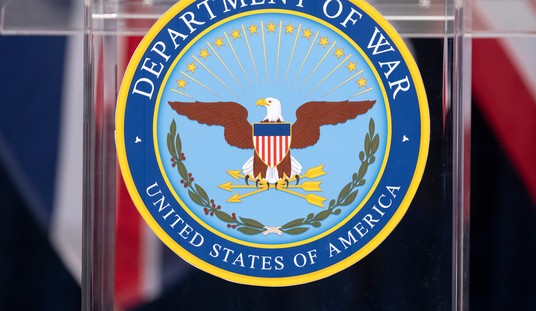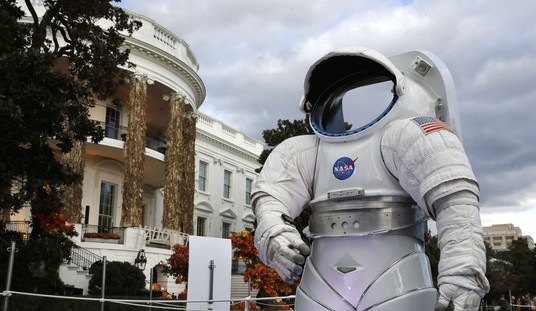The now much maligned NAFTA was the result of Ronald Reagan‘s vision for a prosperous 21st century. Conservative organizations such as the Heritage Foundation supported trade agreements such as NAFTA, and conservative voters by and large went along with that position.
Ronald Reagan first proposed a free trade agreement between the U.S. and Mexico in his 1980 presidential campaign. Since that time, The Heritage Foundation is proud of the role it has played in articulating President Reagan’s vision of free trade in Latin America and around the world. Since the mid-1980s, Heritage analysts have been stressing that a free trade agreement with Mexico not only will stimulate economic growth in the U.S., but will make Mexico a more stable and prosperous country. Heritage has published over three dozen studies stressing the benefits of free trade in North America.
Unfortunately, Reagan’s Presidency probably represented the high point of the conservative embrace of free trade. In 1992, Pat Buchanan ran for the Republican nomination on a largely protectionist platform.
Buchanan’s “flirtation” with protectionism has since become part of mainstream conservatism. Tea party activities are largely skeptical of free trade agreements like NAFTA. In 2010, 61% of tea party supporters believed that free trade agreements such as NAFTA hurt the country. That number was higher than the 53% of the general population that held that same view.
Opposition to trade agreements such as NAFTA is something that Trump has been remarkably consistent on through the years. Trump has specifically criticized Ford for building a new plant in Mexico. His key question is “What good does that do? We don’t get anything.”
http://www.youtube.com/watch?v=7_QY4Gdr3Pc
As it turns out, the plant actually will benefit the US in some important ways. First, it is worth pointing out that the engines to be built in the proposed plant are currently manufactured in China and the UK.
The 1.5-liter engine is currently built in the U.K. and China and is slowly replacing the automaker’s 1.6-liter engine in key vehicles such as the Ford Fusion. Knocking the displacement down a size means paying lower taxes in many countries including China, which will only increase its global popularity
Second, the plant is going to build new engines and transmissions that will be utilized by assembly plants in the US.
Ford is expected to announce Friday it will invest $2.5 billion in Mexico to build new engines and transmissions as part of a drive to increase fuel efficiency across its product portfolio.
The announcement is expected to confirm plans to build Ford’s 1.5-liter turbocharged four-cylinder EcoBoost gasoline engine in North America for the first time.
Those familiar with the auto industry know that many automotive assembly plants in the US can continue to operate in the US because more labor intensive activities can be performed in Mexico, with the parts being shipped to the US for assembly. As it turns out, assembly of the Ford Fusion sedan was moved to the US for the first time in 2013.
The company’s Flat Rock, Mich., plant began making the Fusion on Thursday. The plant, which is about 25 miles south of Detroit, made the Ford Mustang sports car before getting a second shift of 1,400 workers to make the Fusion. The 66-acre plant now has 3,100 workers.
Ford Motor Co. had been making around 250,000 Fusions each year at its plant in Hermosillo, Mexico. But that wasn’t keeping up with demand for the hot-selling midsize sedan, which was revamped last year. Sales this year are up 13 percent to 181,668 through July, making the Fusion one of the best-selling cars in the country.
“We could have sold more if we had more,” Joe Hinrichs, Ford’s president of the Americas, told a cheering crowd of workers at the plant.
With the production at Flat Rock, Ford will be able to make 350,000 Fusions each year. Hinrichs said the cars being made Thursday would likely be sold within two weeks, a much faster rate than the 60-day average for the industry.
The Flat Rock plant was built by Mazda Motor Co. in 1987 and became a joint venture with Ford in 1992. When Ford and Mazda severed ties in 2010, the fate of the Flat Rock plant was uncertain.
“This very location was on the chopping block. We didn’t even know if it was going to stay open,” said Jimmy Settles, the chief Ford negotiator for the United Auto Workers union.During contract talks with the UAW in 2011, Ford agreed to bring Fusion production to Flat Rock. While Ford will have to pay U.S. workers more compared with Mexico, where workers make $2 to $3 an hour, the wage difference isn’t as high as it once was.
In 2007, the UAW agreed that new hires could be paid at half the rate as veteran workers. All but around 150 of the 1,400 workers making the Fusion are new and make $15.78 per hour, the company said. That compares with an hourly wage of $28.50 for veteran workers at the same plant.
Hinrichs wouldn’t comment on the profit Ford will make on the U.S.-built Fusions.
Ford isn’t the only company that has moved work back to the U.S. because of the lower wage rates. General Motors Co. moved production of its Sonic subcompact to Michigan from South Korea in 2011.
So the bottom line is yes, Mr. Trump, having Ford open a new plant in Mexico does help the US. One, it keeps down the price of new automobiles in the US. This benefits the consumer. Second, it benefits business operations in the US that utilize the components manufactured in Mexico. So building plants in Mexico can actually help keep or even bring assembly jobs to the US.
Tariffs really are just another word for taxes. If we believe that lower taxes make sense domestically, there is no reason to oppose lower taxes in the context of international trade. Democrats try to play the game of who deserves a tax break and who doesn’t. Conservatives used to understand that low rates were good for the economy and the well being of the United States.













Join the conversation as a VIP Member